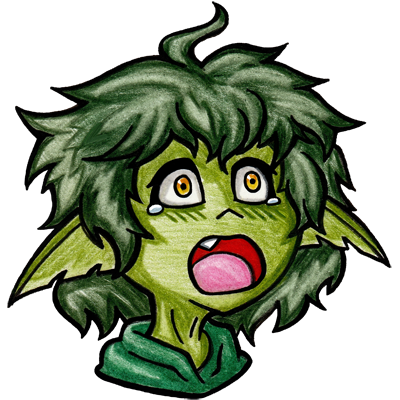Don’t humans have the ability to fuck everything? It’s why half elves and half orcs exist, but no non-human hybrids.
Honestly, Elder Scrolls has it right: the offspring of two different races will always be the race of the mother, but with some traits of the father.
None of that funny crossbreeding stuff, just keep it simple.
So basically your mitochondria decides your species?
Personally I like keeping it a little more complicated. It’s the same race as the mother, unless the mother is a ditto, in which case it’s the same race as the father.
At first I read this as “these species can fuck each other”. Then I realized that this is only concerning conception, all these species could fuck each other as they please.
Y or M means you can fuck that species. N means you can fuck that species without protection.
Technically it implies that all these other races are diverged near humans, humans being relatively unchanged remain close enough to produce viable offspring, but with different non human races being diverged from each other to the point of non viability.
So basically the racial map for a D&D setting would have humans at the center, with half children in each of the spokes of a wheel, and every non human race being nodes located in the environment where they developed in extremity, and then from there you can build the environment under the premise of the conditions that developed elves or dwarves or orcs from the human starting point.
This would also have to include a backstory spanning tens of thousands of years.
Alternative: humans were specifically engineered to be able to half-breed with anything - even elemental beings - so that they’d be able to take over the world.
Too close to great replacement theory to be campaign safe IMO
Vumans get a feat, which is arguably one of the strongest abilities. Base humans are notoriously weak though.
There is legitimately an issue in all fantasy games where designers build a rich diverse setting with many different races that have their own exciting cultures and designs and differences, but if they include “human” about 50% of players choose human. This persists through boardgames, RPGs, videogames and LARP. The exact proportions vary a bit from game to game and from playerbase to playerbase, but it’s very common.
Larian revealed some stats a while back for BG3, about 50% of players chose human, elf, or half-elf (the three most “human” looking races". If you choose one of the existing characters to play as, Gale is the most common. It’s an encouraging result, there’s more diversity in the picks for BG3 than most other games, but it’s still very “human” skewed. Halfling, Gnome and Gith were much less commonly picked.
If you’ve been tabletop gaming for a long time, your instinct is to think things like “but why would anyone play as a human? that’s boring!” or “I play these games for escapism and I want to play as something different to myself.” or the like, but the reality is that there’s a very large cadre of players who want to create characters or avatars that are “like them” - they want to self-insert, or they want to pretend they are their character, and have difficulty squaring that with being a gnome or a goblin or a Dragonborn.
As such, you can get this weird disconnect between your setting writing (where there’s a large variety of different, interesting races in the world) and your playerbase (majority human) which skews your design towards a human-centric viewpoint that you don’t necessarily want - especially if you put work into the design of cultures of other races, and you want players to explore a variety of ideas and styles.
So what’s the solution? - a common design solution is to mechanically incentivise players to choose outside of human, by giving humans disadvantages, or giving other races unique advantages that are desirable. Is this the right approach? your mileage might vary, but it’s one of the easiest “patches” to encourage diversity in the playerbase, so it’s a common choice.
Does 5e do this? probably not - human is very mechanically powerful, especially at low levels where the variant human feat can make a big difference… but they did make humans more “boring” than the other races, hopefully encouraging more dragonborn and gnomes and half-orcs and so on.
There’s also an issue where fantasy fiction can’t get away from this idea of fantasy “races” with “cool powers”. It adds this additional layer of representation that needs to happen when it’s already difficult to make real human cultures and groups feel represented in a game without infinite NPCs or world-building. Humans tend to be one or two cultures and the other “races” get coded as others. Most games would be better off without including the unquestioned trope of “fantasy races” (yes, D&D included) unless they actually built their setting and game around the idea (which most have not).
There is an advantage of “baby’s first introduction to the idea that different peoples can have different cultures, and they’re all valuable.” - for some people they’ve never experienced or ever thought about this… and it’s “simpler” to grasp than (the much better design) of different regions having different cultures, and each region having a mix of races.
On the other hand, there’s a massive disadvantage in portraying “all people of this race are (stereotype x), all people of that race are (stereotype y)”
DMs and GMs, this is a place where you can shine with your worldbuilding. Make towns that have a mix of races, and give towns their own culture. It’s worth it and much more immersive.





